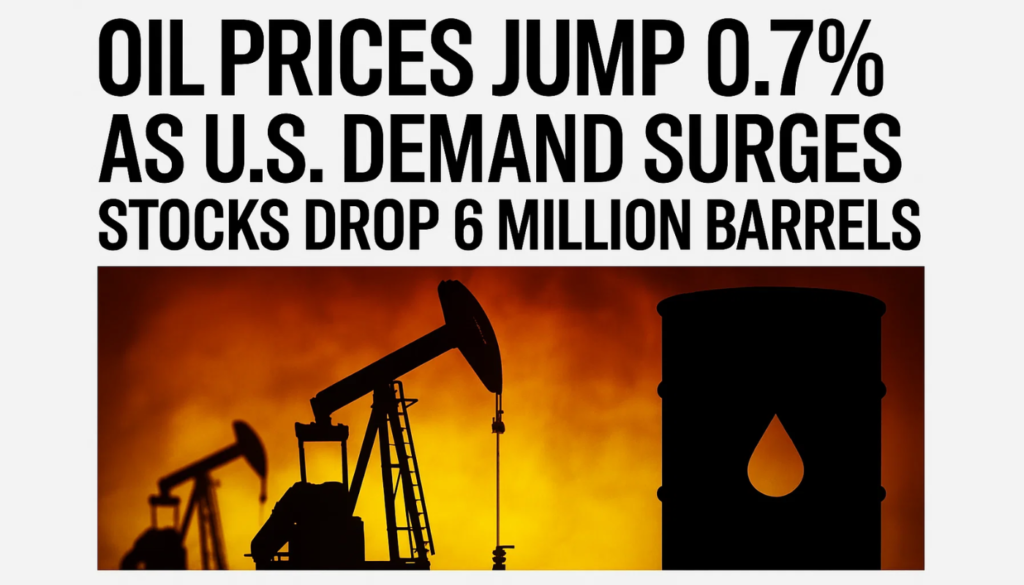Oil markets extended gains Thursday, supported by clear signs of resilient U.S. demand. Brent crude rose 0.61% to $67.25 per barrel, reaching a two-week high, while West Texas Intermediate (WTI) added 0.72% to $63.16 per barrel. Both benchmarks advanced more than 1% in the previous session, reflecting renewed optimism.
The upward momentum was driven by an unexpected drop in U.S. crude inventories. According to the Energy Information Administration (EIA), stockpiles fell 6 million barrels last week to 420.7 million, far exceeding analysts’ forecasts of a 1.8 million-barrel draw.
Gasoline inventories also posted a sharper-than-expected decline, falling 2.7 million barrels against estimates of 915,000. Meanwhile, jet fuel consumption climbed to its highest four-week average since 2019, underscoring the strength of travel-related demand.
Market Balances Optimism and Caution
The demand-driven rally comes amid ongoing geopolitical uncertainty. Analysts noted that while consumer appetite is bolstering prices, traders remain cautious.
Key factors shaping sentiment include:
- Progress, or lack thereof, in peace talks between Russia and Ukraine.
- Persistent Western sanctions on Russian oil, keeping global supply tight.
- Heightened risk of new tariffs on countries buying Russian crude.
“Crude oil prices rebounded as signs of strong demand in the U.S. boosted sentiment,” said Daniel Hynes, senior commodity strategist at ANZ. He added that lingering “bearish sentiment” stems from traders tracking developments in Eastern Europe.
Sanctions, Trade Tensions Add Pressure
The geopolitical backdrop continues to complicate energy markets. Russia has rejected Western-led efforts to negotiate Ukraine’s security guarantees, with Moscow calling them a “road to nowhere.” As a result, sanctions on Russian crude remain intact, sustaining tightness in global supply chains.

At the same time, U.S. President Donald Trump announced a 25% tariff on Indian goods starting August 27, citing India’s continued purchases of discounted Russian oil. The European Union has also targeted Indian refiner Nayara Energy, partly owned by Russia’s Rosneft.
Indian refiners had initially scaled back imports, but with deeper discounts emerging, Indian Oil Corp. and Bharat Petroleum have resumed buying for September and October deliveries. This underscores how price dynamics continue to influence buyers despite political headwinds.


